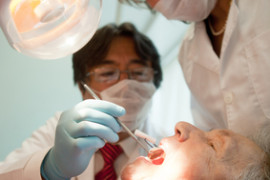Children with inflammatory bowel disease tend to have more caries, increased inflammation, and a greater need of periodontal treatment, according to a recent study in the journal Inflammatory Bowel Diseases.
The study population consisted of 110 children, half of which were on remission from an outpatient inflammatory bowel disease clinic. All children underwent a thorough dental examination and treatment. The children with inflammatory bowel disease required significantly more treatment than the healthy control group:
“Most of the patients with IBD needed treatment of gingivitis (47% versus 4%), and none of them had healthy periodontium (0% versus 69%).”
This difference was despite similar oral hygiene status among all the patients.
Inflammatory bowel disease includes a variety of conditions that are characterized by pain and inflammation in the gastrointestinal tract. According to the Chron’s and Colitis Foundation of America, approximately 1.6 million people are affected by IBD—as many as 80,000 of them children—in the United States alone.
The connection between oral health and inflammatory bowel disease has been well documented, both in human and mouse models. The same bacteria that cause caries and periodontal disease increase inflammation throughout the body, causing even more problems for people with an inflammatory condition like IBD. Likewise, the inflammatory nature of IBD appears to exacerbate periodontal disease.
There is no cure for inflammatory bowel disease, a condition that has a significant negative impact on the quality of life for those who suffer with it. As with most inflammatory conditions, addressing oral inflammation and bioburden in patients with IBD is one relatively simple course of action that may, as part of a coordinated treatment plan with the patient’s medical team, help manage this disease.



